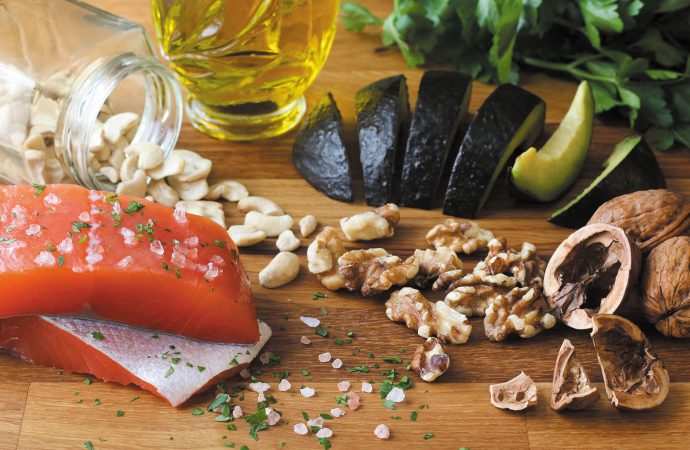Introduction Are you someone who suffers from chronic pain on a daily basis? Do you find that the discomfort is affecting your quality of life and limiting your activities? If so, you’re not alone. Chronic pain affects millions of people worldwide, but there are ways to manage it through proper nutrition and diet. In this
Introduction
Are you someone who suffers from chronic pain on a daily basis? Do you find that the discomfort is affecting your quality of life and limiting your activities? If so, you’re not alone. Chronic pain affects millions of people worldwide, but there are ways to manage it through proper nutrition and diet. In this blog post, we’ll explore some of the common causes of chronic pain and how making simple changes to your eating habits can help ease the discomfort. So sit back, relax, grab a cup of tea or coffee, and let’s get started!
What are some common causes of chronic pain?
Chronic pain is a complex condition that affects millions of people worldwide. It can be caused by various factors and can cause significant discomfort if left untreated.
One common cause of chronic pain is injury or trauma. This could include back injuries, muscle strains, or broken bones that have not healed properly.
Another leading cause of chronic pain is arthritis, which refers to inflammation in the joints. This condition can affect people at any age and can lead to severe joint pain.
Chronic headaches are also a prevalent form of chronic pain. These types of headaches may be due to tension, migraines, or other underlying medical conditions.
Additionally, nerve damage resulting from disease or injury may also result in chronic pain symptoms such as tingling sensations, numbness, and burning sensations.
There are many other potential causes of chronic pain that vary from person to person. But regardless of the cause, seeking proper medical treatment and making lifestyle changes like improving nutrition habits can help manage this condition effectively.
The relationship between nutrition and chronic pain

Image by: Yandex.com
The food we eat plays an important role in our health, including the management of chronic pain. Poor nutrition can lead to inflammation, which is a common cause of chronic pain. Eating a balanced diet that includes anti-inflammatory foods can help manage discomfort.
Certain foods have been shown to reduce inflammation and ease pain, such as fatty fish like salmon and tuna which contain omega-3 fatty acids. These healthy fats are known to decrease inflammation and improve joint flexibility. Other anti-inflammatory foods include fruits like berries, vegetables like leafy greens and nuts/seeds.
Additionally, staying hydrated is crucial for managing chronic pain as dehydration can exacerbate discomfort. Drinking plenty of water throughout the day helps keep joints lubricated and reduces stiffness.
On the other hand, consuming processed or sugary foods may increase inflammation in the body leading to more severe symptoms of chronic pain. It’s important to avoid these types of food when dealing with ongoing discomfort.
While nutrition cannot cure chronic pain completely on its own, it can play an essential role in reducing symptoms and improving overall quality of life for those who suffer from it regularly.
Importance of Balanced Meals
Balanced meals that include lean proteins, healthy fats, and complex carbohydrates provide steady energy and help maintain muscle mass, which is important for supporting your joints. Skipping meals or relying on quick processed snacks can lead to energy crashes and poor nutrient intake, which may worsen pain symptoms.
A balanced plate might include:
- Grilled chicken or fish for protein
- Quinoa or sweet potatoes for complex carbs
- Steamed broccoli or salad for fiber and vitamins
- Olive oil or avocado for healthy fats
Vitamins and Minerals That Support Pain Relief
Certain vitamins and minerals play a direct role in reducing inflammation, supporting nerve function, and aiding muscle recovery.
- Vitamin D: Supports bone and immune health; can be found in fatty fish, fortified foods, and sunlight exposure.
- Calcium: Essential for strong bones; found in dairy, leafy greens, and fortified alternatives.
- Magnesium: Helps muscle relaxation and nerve function; found in nuts, seeds, and whole grains.
- Vitamin C: Supports collagen production for healthy joints; found in citrus fruits, bell peppers, and berries.
A healthcare provider can help determine if supplements are needed in addition to a healthy diet.
Planning Meals for Chronic Pain Management
Meal planning can make it easier to stick to a pain-friendly diet. By preparing meals in advance, you can avoid relying on unhealthy options when you’re tired or in pain. Try:
- Cooking larger batches and freezing portions for busy days
- Keeping healthy snacks like nuts, fruit, or yogurt on hand
- Using a slow cooker for easy, nutrient-rich meals
- Creating a shopping list to focus on whole, fresh ingredients
The Mind-Body Connection and Food
What you eat can also affect your mood and energy levels, which in turn can influence how you experience pain. Diets high in processed foods and sugars may increase fatigue and feelings of depression, while nutrient-rich diets can help stabilize mood and boost energy. Managing stress through healthy eating, meditation, or gentle exercise can also help reduce pain perception.
Lifestyle Tips to Complement Your Diet
While nutrition plays a big role, combining healthy eating with other lifestyle habits can maximize pain relief:
- Gentle exercise: Activities like swimming, yoga, or walking can improve flexibility and reduce stiffness.
- Adequate sleep: Quality rest helps the body repair and manage pain better.
- Stress management: Mindfulness, breathing exercises, or hobbies can help lower stress-related pain flare-ups.
Working with Professionals
A registered dietitian or nutritionist can help you create a meal plan that addresses your specific type of chronic pain. They can guide you on portion sizes, food combinations, and possible nutrient deficiencies. Working with your doctor can also ensure that any dietary changes complement your current treatment plan.
Conclusion
Chronic pain can be a debilitating condition that impacts every aspect of life. While there is no one-size-fits-all approach to managing chronic pain, nutrition and diet can play a vital role in easing discomfort and promoting overall health.
By incorporating anti-inflammatory foods such as fatty fish, leafy greens, nuts, and whole grains into your diet while avoiding processed foods and excess sugar consumption, you may experience significant relief from chronic pain symptoms.
Of course, it’s always essential to consult with your healthcare provider before making any drastic changes to your diet or lifestyle. But by taking steps towards improving your nutritional intake and adopting healthy habits such as regular exercise and adequate sleep hygiene, you’ll be on the path towards reducing chronic pain discomfort naturally.

















Leave a Comment
Your email address will not be published. Required fields are marked with *